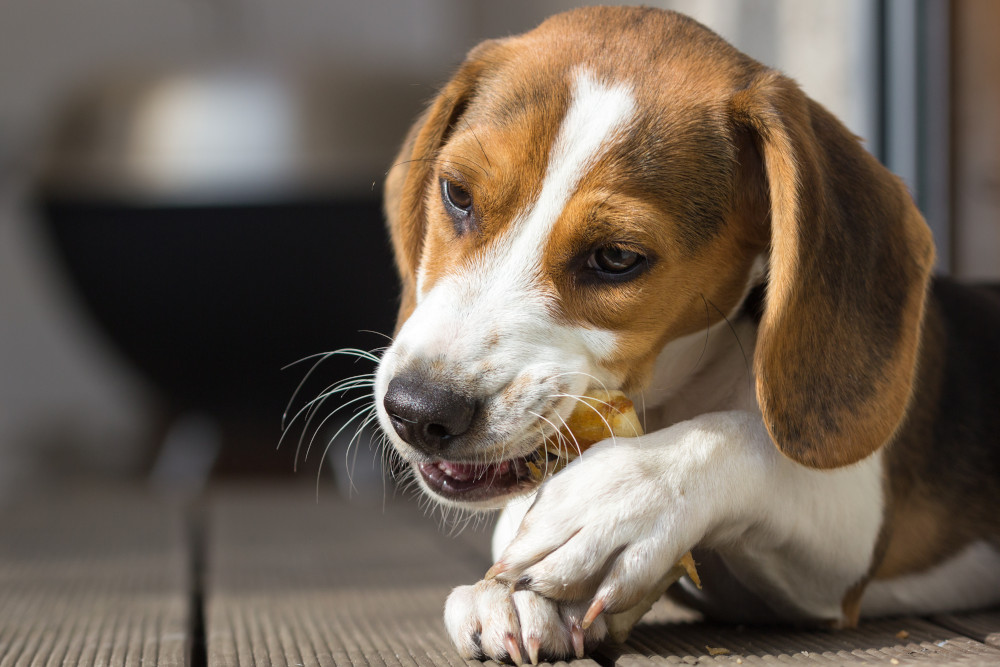
Chewing is a normal dog behaviour, and dogs should be provided with opportunities to chew things. However, chewing can be a problem if it’s excessive, or if the dog is injuring themselves or damaging property.
Punishing dogs for chewing or stopping them without understanding why they’re chewing can lead to more problems. If you wish to stop them, the first step is to work out why your dog is chewing.
Motivations to chew
Dogs are highly motivated to chew different materials as part of normal feeding and exploratory behaviour, and chewing is important to maintain their physical and mental health. Puppies, in particular, investigate their environment by sniffing and chewing on objects. Puppies need to chew a lot during their teething phase (which starts at about 12 weeks of age) when baby teeth are replaced with permanent adult teeth.
Dogs can sometimes chew excessively if there are underlying problems, or if their needs are not being met. For example, their motivation to chew may not be fulfilled if they are only fed commercial dog food in a bowl. Dogs may be more likely to chew things to cope with stress, anxiety and boredom (e.g., being left alone, changes in routine). If a dog is chewing excessively, this can reflect an underlying issue such as separation anxiety, frustration, loneliness, hunger, insufficient exercise, or physical health problems [1].
Ask yourself:
- Is my dog getting enough daily exercise?
- Is my dog getting enough daily attention and social company?
- Does my dog have enough mental stimulation at home?
- How long is my dog being left on their own?
Strategies to adopt
You can address chewing behaviour by providing your dog or puppy with:
- Enrichment, physically and mentally stimulating activities (e.g., exercise, puzzle feeders). See the Knowledgebase article ‘Why is enrichment important for dogs’ for more information
- Safe objects to chew (e.g., hard chewing materials, dental chews, toy filled with food) with adequate supervision
- Reward based training, try providing additional rewards when your dog chews ‘approved’ objects (e.g., verbal praise, play time)
- Restrict access to things you do not want chewed
Limitations and risks
When providing dogs with objects to chew, it is important to select carefully and supervise as necessary. Risks such as choking, tooth fractures, gastrointestinal problems (e.g., objects being swallowed), are avoidable. However, if these problems occur, or if the chewing is excessive, seek veterinary advice.
Reference
[1] Arhant C, Winkelmann R, Troxler J (2021) Chewing behaviour in dogs – A survey-based exploratory study. Applied Animal Behaviour Science 241:105372
